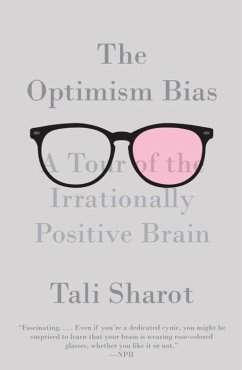Psychologists have long been aware that most people maintain an irrationally positive outlook on life-but why? Turns out, we might be hardwired that way. In this absorbing exploration, Tali Sharot-one of the most innovative neuroscientists at work today-demonstrates that optimism may be crucial to human existence. The Optimism Bias explores how the brain generates hope and what happens when it fails; how the brains of optimists and pessimists differ; why we are terrible at predicting what will make us happy; how emotions strengthen our ability to recollect; how anticipation and dread affect us; how our optimistic illusions affect our financial, professional, and emotional decisions; and more. Drawing on cutting-edge science, The Optimism Bias provides us with startling new insight into the workings of the brain and the major role that optimism plays in determining how we live our lives.
Dieser Download kann aus rechtlichen Gründen nur mit Rechnungsadresse in A, B, BG, CZ, D, DK, EW, E, FIN, F, GR, HR, H, I, LT, L, LR, NL, PL, P, R, S, SLO, SK ausgeliefert werden.

